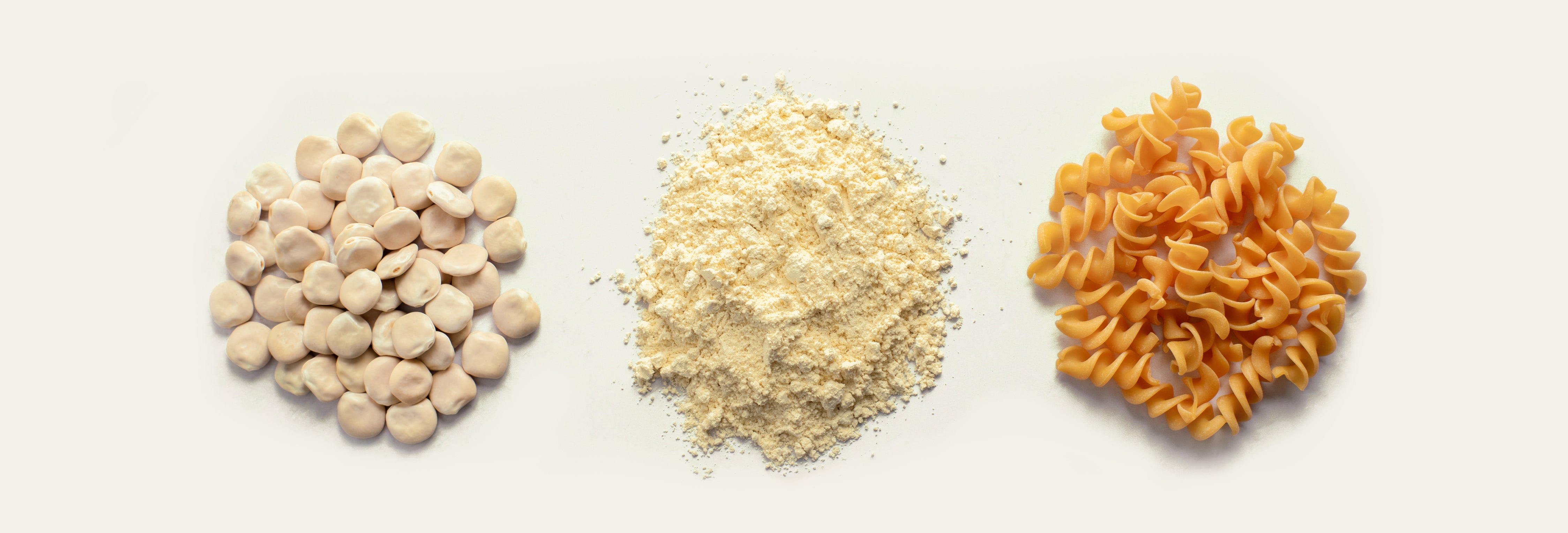Why Lupins?
Meet History's Most Powerful Superfood

A Legendary Treasure for Modern Wellness
Lupins have nourished empires and civilizations for millennia—cultivated by the ancient Greeks, Romans, Egyptians, and Indigenous communities of the Andes. This extraordinary legume, a cousin of chickpeas and lentils, was revered for its resilience and remarkable nutrition: exceptionally high in protein and fiber, low in carbs, and packed with powerful micronutrients. With a clean, neutral taste and unmatched health benefits, lupins are the legendary superfood modern wellness has been waiting for.
Discover the Lupin Difference
Per 1.75 oz
Net Carbs
Protein
Fiber
1g
20g
19g
Traditional Pasta
39g
7g
3g
Chickpea Pasta
24g
11g
4g
Almond Flour Pasta
16g
5g
2g
Lentil Pasta
25g
11g
5g
Lupins are Nutritionally Unrivaled

LOW CARB
Fewer Net Carbs Than Chickpeas
Fewer Net Carbs Than Cassava Flour

HIGH PROTEIN
MORE PROTEIN than chickpeas
MORE PROTEIN than chia seeds

GUT FRIENDLY
MORE FIBER than OATS
More FIBER than Lentils
Packed with the Good Stuff and None of the Bad
Brimming with essential nutrients like:
-

Vitamins A, B, C and E.
-

Calcium, folates, potassium, magnesium, phosphorus, iron and zinc.
-

Antioxidants like carotenoids lutein, zeaxanthin
Extremely low in antinutrients
-

No lectins.
-

Low in phytic acid, saponins, and trypsin inhibitors, all of which are typically high in other legumes.
-

Low antinutrients = much easier to digest and more gut friendly when compared to all other legumes.
Lupin has more:

Calcium
than milk

Potassium
THAN A BANANA

Magnesium
THAN Spinach

Iron
THAN Kale

Antioxidants
THAN most Berries
Clinically Proven Health Benefits
Studies show that Lupin...
Helps maintain healthy blood sugar levels.
Has beneficial impact on markers relating to cardiovascular health.
Lowers blood pressure in overweight adults.
Is highly satiating, an effect that helps maintain healthy body weight.
Contains phenolic compounds which may provide protection against diseases related to oxidative stress.
Contains minerals that are essential for muscle functionality.
Improves
bowel health.
Is gut friendly and promotes growth of good gut bacteria.
-
Good for your body and the environment
Lupin contributes to sustainable agriculture:
- Boosts soil quality
- Requires much less water than other crops
- Fertilizes soil and provides food for animals
- Naturally repels pests, and requires no pesticides
-
